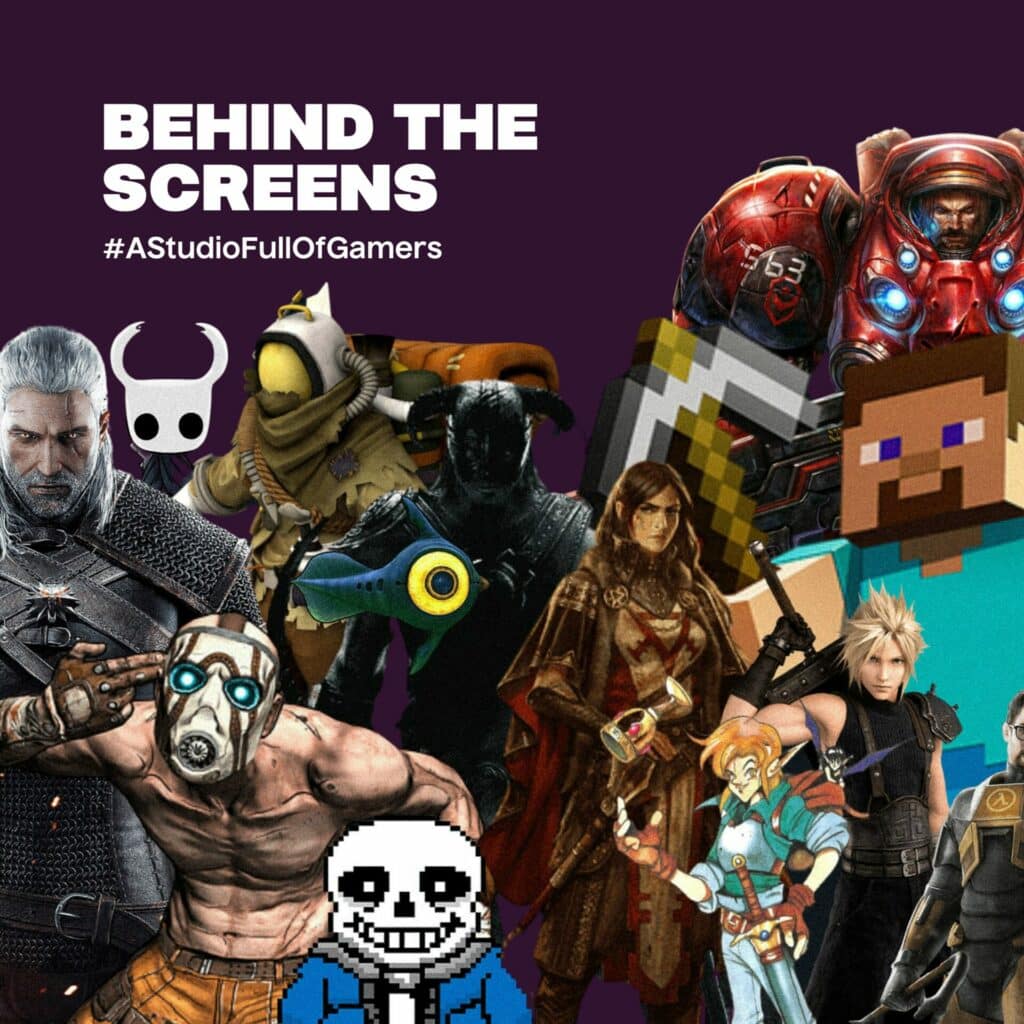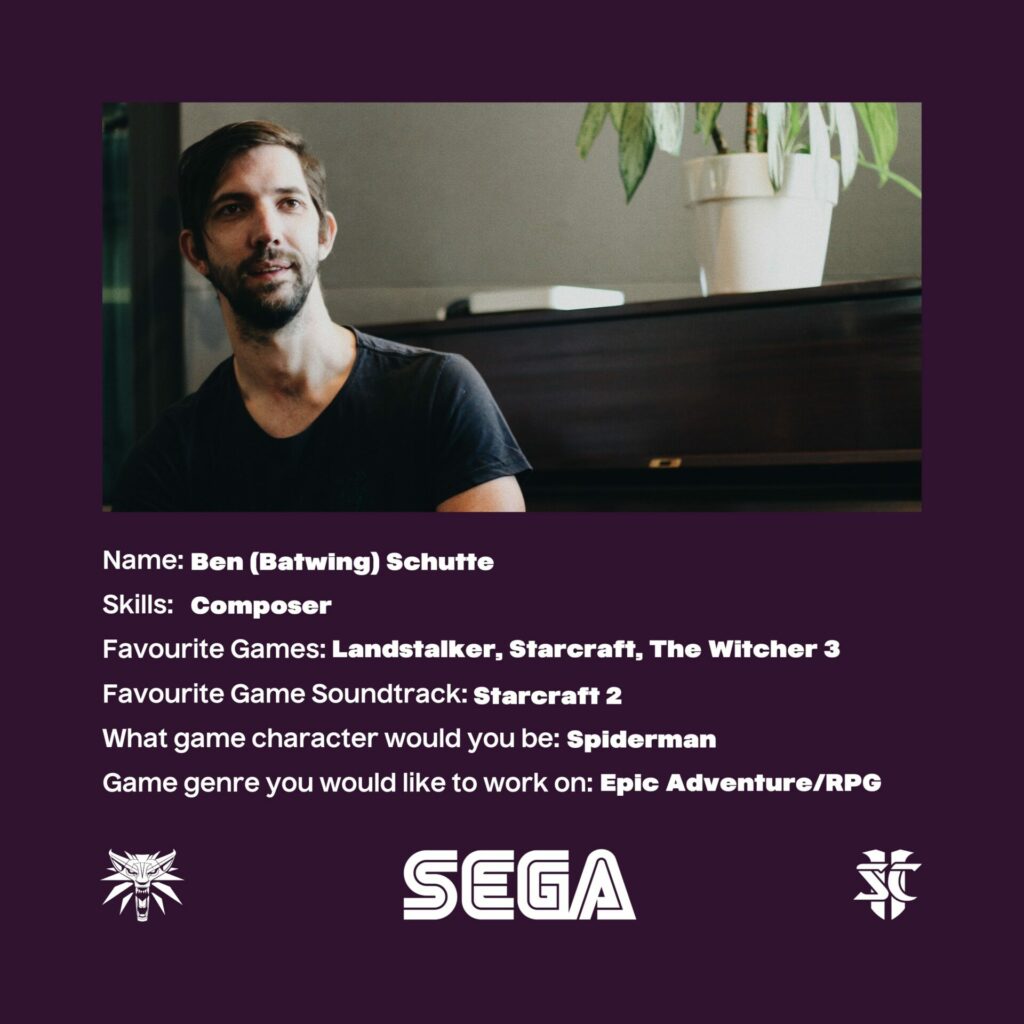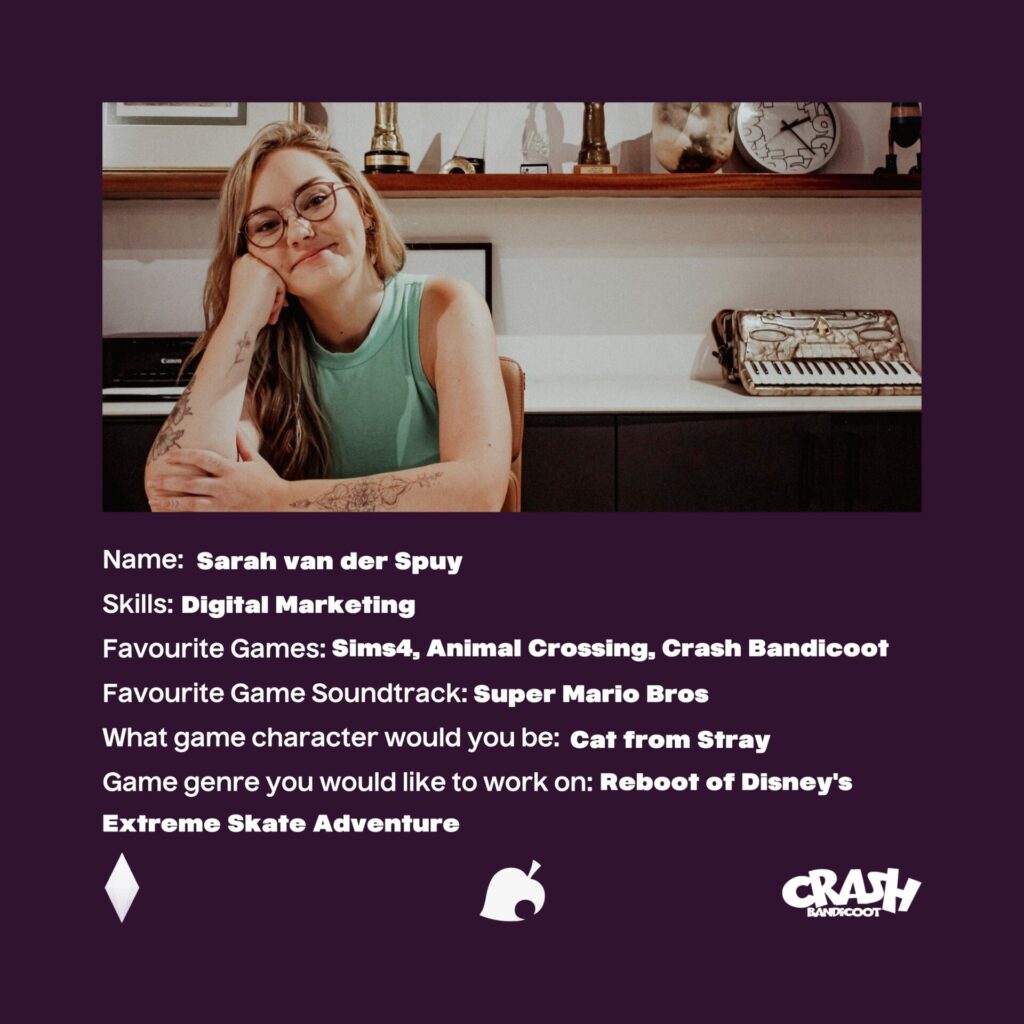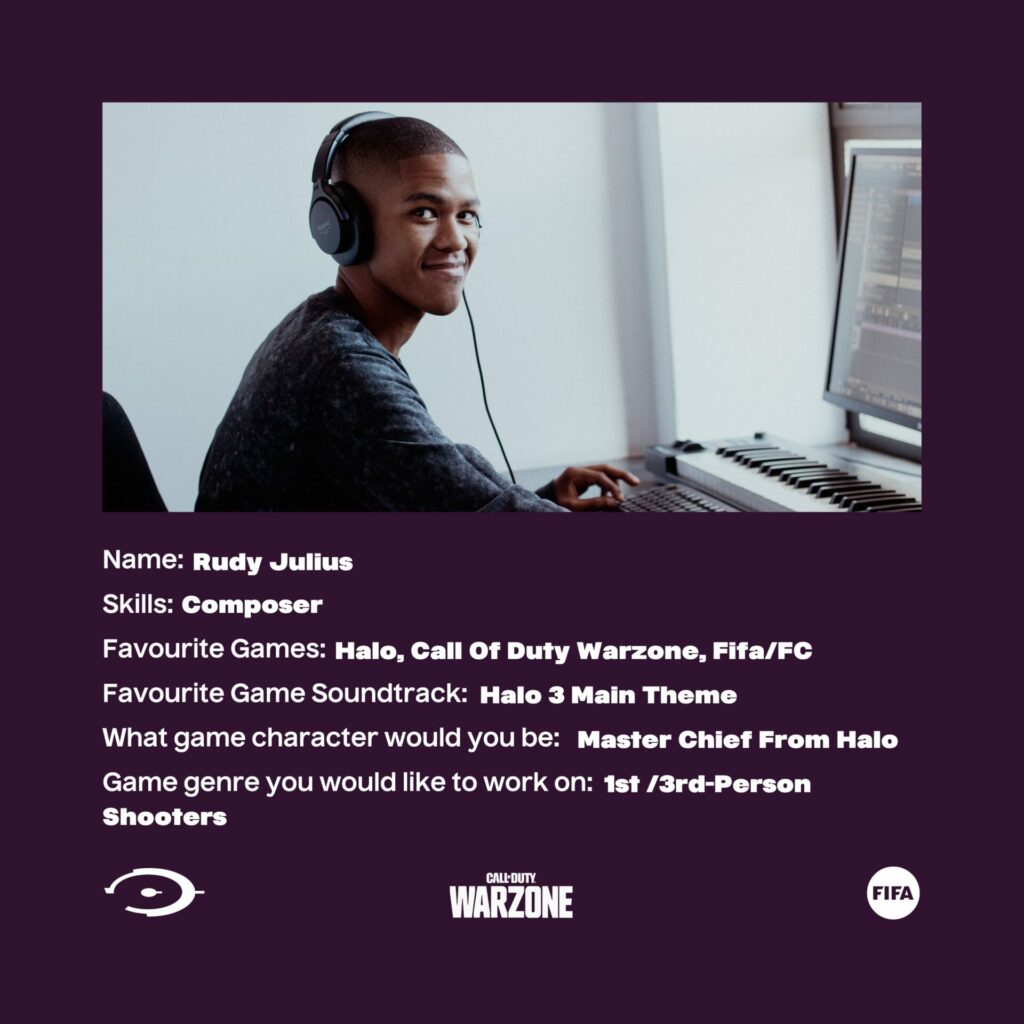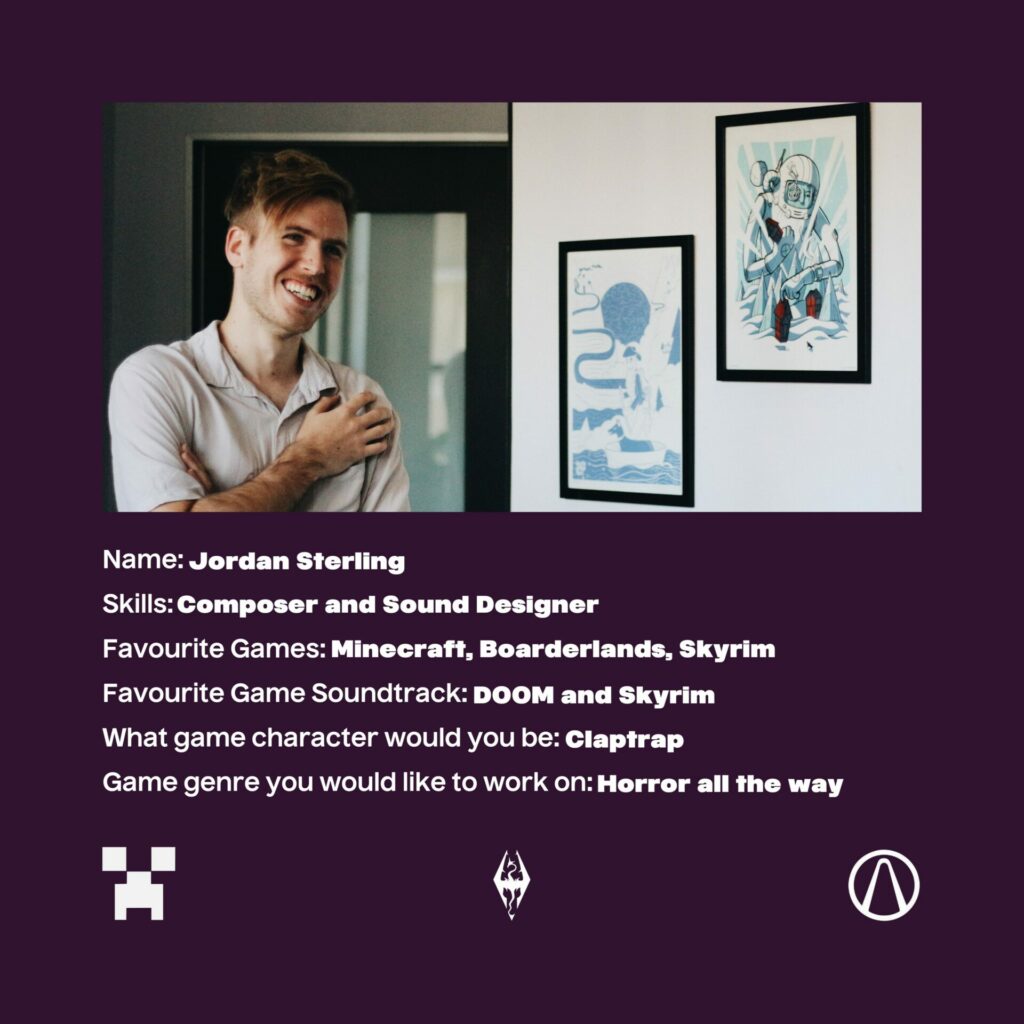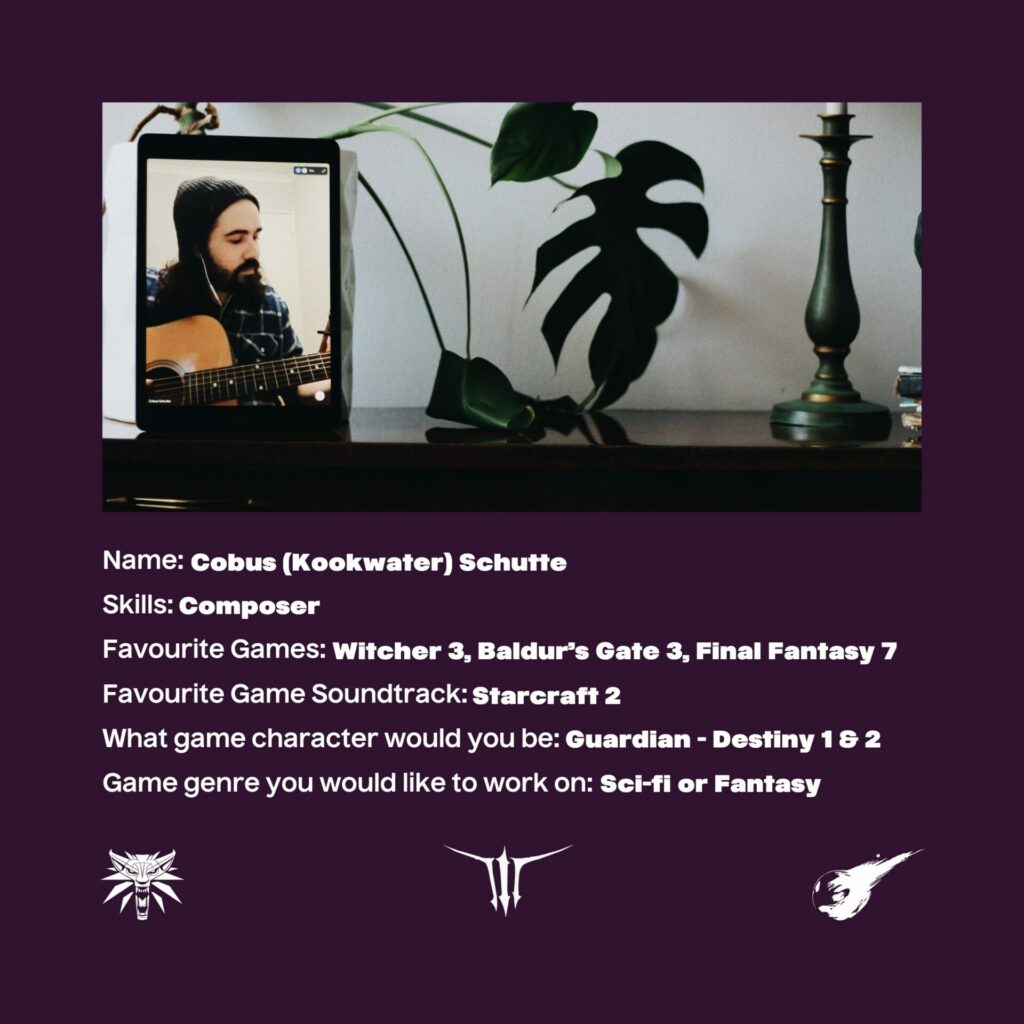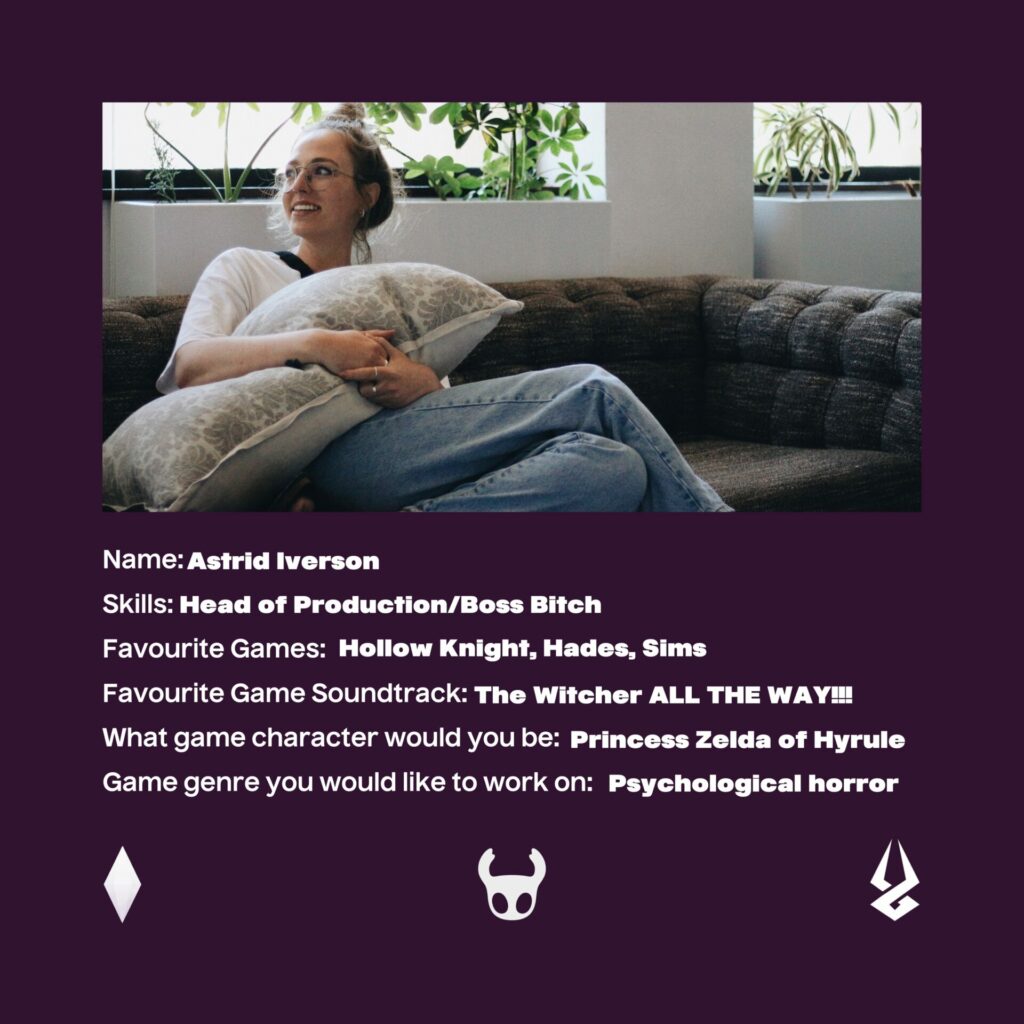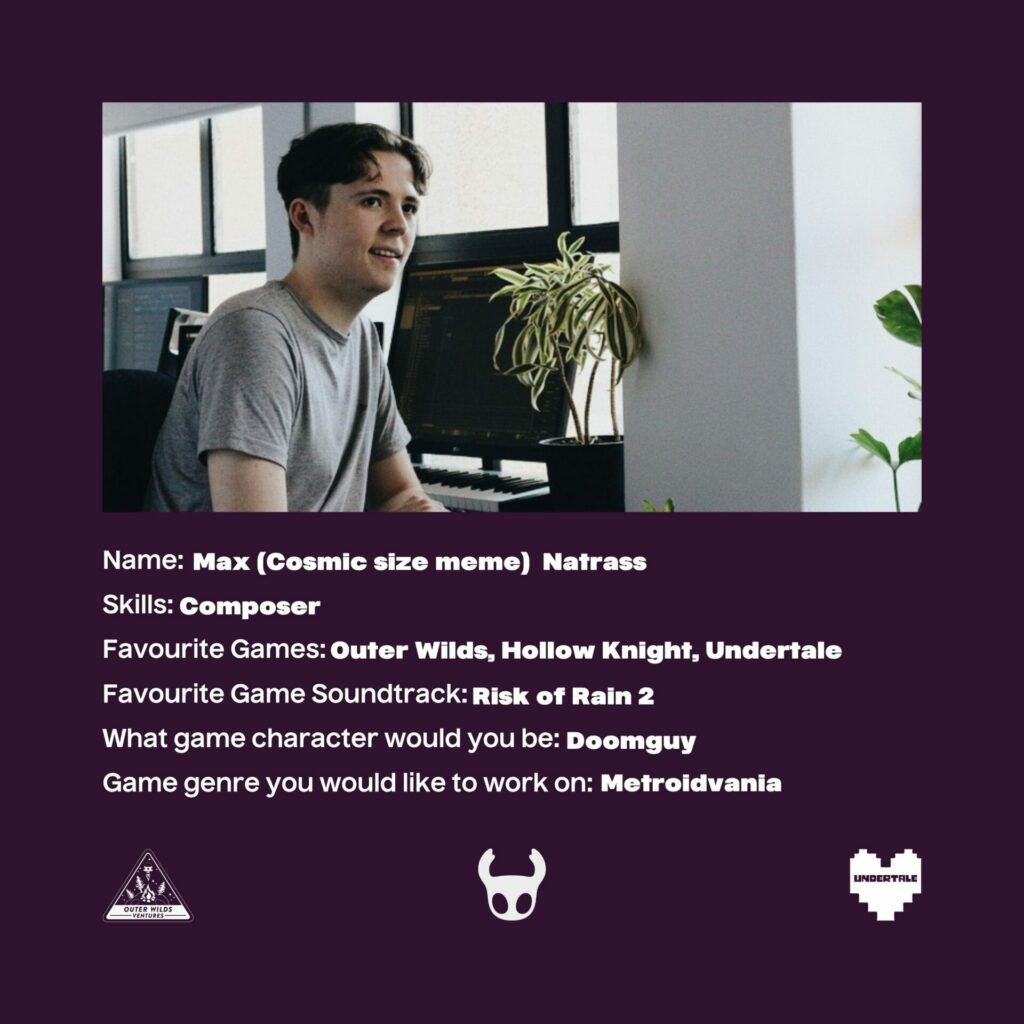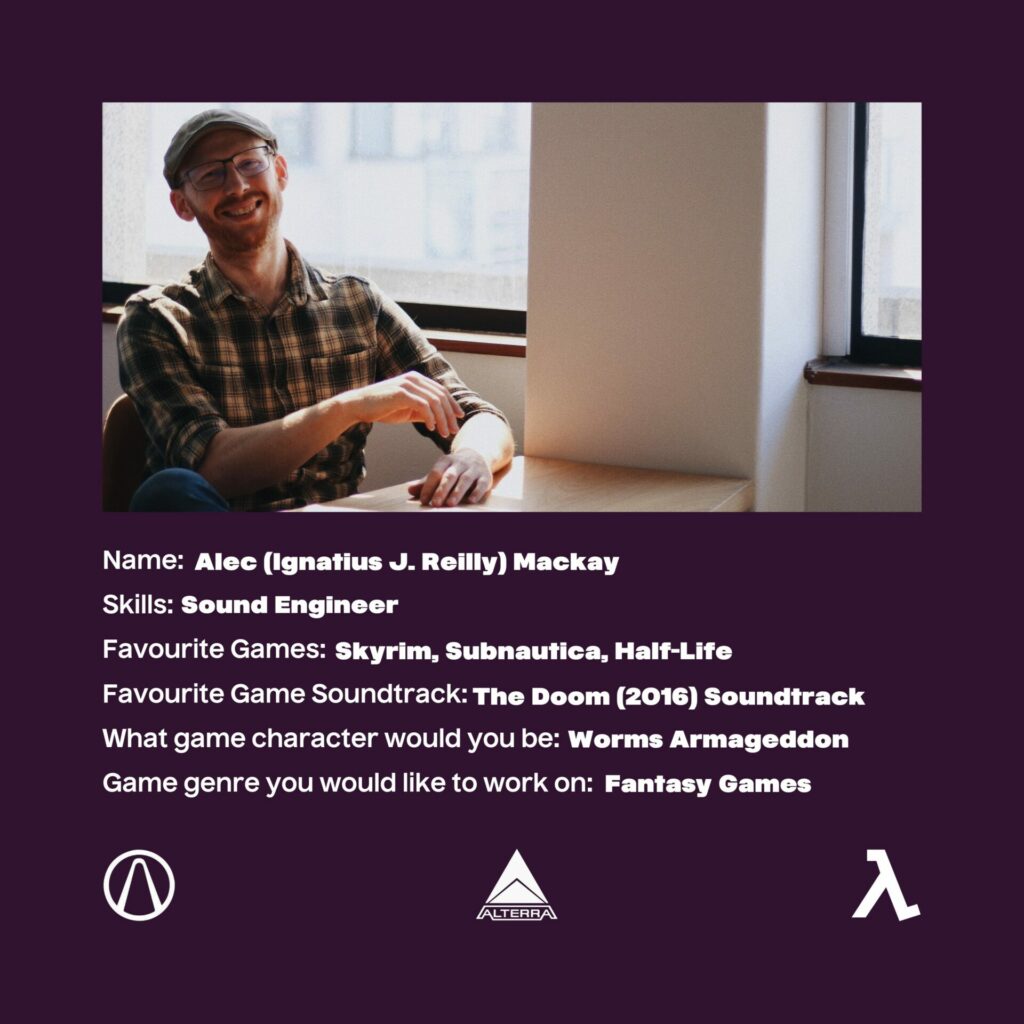From the retro backstreets of pixel-powered classics to the expansive vistas of next-gen epics, we invite you on an adventure as we unravel the intricacies of gaming with our very own studio of passionate gamers, who call South Africa home but speak a universal dialect of play.
We’ve been all ears as our maestros of composition and sound design spilled their guts about dream projects and the heroic tales behind their top in-game victories.
Welcome to our gaming blog, and get ready, player one.
How important do you think music and audio is to the overall gaming experience? Can you share an example where music/audio significantly enhanced your gaming experience?
Max Natrass: The essence of creating an immersive gaming experience lies in the pivotal role of music and audio. While visual feedback is crucial, sound adds weight to character movements, making players feel they inhabit the game world rather than observing from afar. Sound design anchors players, allowing them to experience the game through their characters’ senses. Similarly, music plays a crucial role in maintaining immersion by dynamically adapting to in-game actions and environments. This adaptive quality of game scores enhances the illusion of a responsive, living world, heightening the player’s connection to the virtual environment beyond mere button presses.
Jordan Sterling: In gaming, the primary aim is to deeply immerse players in captivating worlds and evoke genuine emotions. Music and sound play indispensable roles in achieving this, serving not merely as enhancements but as critical components. For instance, This War of Mine, despite its minimalist score, merges with its sound design to create a profoundly immersive and emotionally resonant experience. Conversely, in Assassin’s Creed: Black Flag, the score and sound design are integral to establishing its richly detailed world; their absence would diminish its impact significantly. Reflecting on these games, Black Flag’s score particularly stands out, vividly recalling the immersive experience it created.
Elben Schutte: Music and audio is as important to building the world of a game as is the visual aspect thereof. This is true for all visual media. Without music there is no soul, without audio there is no tangible connection. I think a very obvious example of this would be DOOM. Imagine playing that game without Mick Gordon’s epic black-hole of metal-driven synths and guitars making you feel like a total badass, or blowing the heads off demons without hearing the exploding gore. Just wouldn’t work.
Alec Mackay: It depends on the game, but in many cases the music helps to set the tone by helping the player experience the game the way it is intended, much like a film score. A dynamic score helps to indicate shifts in the game’s mechanics and can greatly improve immersion, while a static score can simply aid in making it an enjoyable experience. Sound design can be critical to the player’s experience, as repeated actions need to feel satisfying and enjoyable. If clicking on that button or smashing that box feels tactile and satisfying, it’s a lot more entertaining and engaging. It also needs to fit the rest of the art style – sometimes ultra-realistic sounds really don’t pair well with low-poly 8-bit art styles.
Cobus Schutte: Music and audio is an enormous part of the overall gaming experience! It supports the visuals by creating and enhancing moods and atmospheres, while also emphasising the emotional impact of the narrative. A lot of games also have a strong emphasis on combat, and the music and sound design are a massive part of the overall feel and immersion. Games like Doom 2016 and the Witcher 3 are great examples of this.
What unique elements do you think South African composers, sound designers and game devs bring to the international gaming scene?
Max Natrass: With games quickly becoming established as a full blown artform, the medium could really use unique narrative voices and perspectives to help innovate new stories and awesome worlds for them. Having more games that are inspired by and draw from the rich history and diversity of the African continent would provide fresh new experiences for gamers around the globe to enjoy. Games don’t specifically need “African” settings either in order for South African composers and sound designers to weave in a fresh perspective and infuse international projects with a unique, modern sound inspired by our country’s rich musical background and cultures.
Alec Mackay: The local game development industry is pretty small, but they are a tightly knit and supportive community. They’re a community that uplifts, shares, and improves the art of those around them with a well structured support system, and I see that as a very unique selling point. Not many art forms have such an open community, especially when it comes to developing new ideas.
How has gaming influenced your life and career?
Max Natrass: Gaming was my initial hobby that grew into a profound passion beyond mere leisure. Soon after, music and composition became another strong interest. Game soundtracks, in particular, captivated me more deeply than film scores or commercial albums. Discovering how music is crafted for games, with its nonlinear and adaptive nature, sparked a fascination that solidified my dream of composing music for games. This merging of my earliest and most significant passions—gaming and music—has shaped my career aspirations, leaving me eager to pursue game composition above all else.
Jordan Sterling: Gaming for me has always been more about connecting, socialising and worldbuilding than the games themselves. It’s a way to connect and hang out with people and to dive into different worlds with friends. For me it was a platform to bring people together, and worlds to tinker with… I created servers, mods and unique ways for us to interact with each other. It’s the experience around the game for me more than the game itself.
Elben Schutte: I have always had a connection to music, and also always had a connection to games. Work and play. So naturally, I have always taken notice of scores in games. As a composer, I tell stories and build worlds with music, and it wasn’t a far leap toward the desire to do just that for a medium that I love dearly.
Alec Mackay: Growing up, I developed a passion for challenging puzzle-solving and immersive story-driven games, spending countless hours with my brothers on consoles and at LAN parties. My first hands-on experience with game development was creating a VR simulation for construction site safety. This sparked my interest in working within game engines. Transitioning into the indie game scene, I eagerly seized opportunities to collaborate on projects like Fantasy Strike, Heist Simulator, Ozymandias, and Kraken Academy. Working alongside a mentor in sound design and composition, I gained valuable insights into game sound integration, solidifying my path in game development.
Cobus Schutte: I’ve been playing games my whole life and they are one of my favourite ways to relax, both alone and with friends. I’ve always been drawn to the idea of ‘interactive escapism’, and while I also love reading books and watching TV, gaming has always been my ideal way to pass the time. Being a musician and composer, I’ve always been inspired and influenced by game soundtracks, and they are what got me into composition in the first place.
How do you think gaming has evolved over the last decade, and where do you see it heading in the next ten years both internationally and locally?
Elben Schutte: The rapid evolution of technology has significantly shaped gaming, placing mechanics at the forefront as computing capabilities have advanced. Previously, games relied more on storytelling for immersion, creating memorable experiences. With current computing power, gaming is entering an exciting era poised for VR’s expansion. Today’s VR capabilities mirror past “flat” games, suggesting promising future enhancements with more powerful hardware. Additionally, as local and international gaming markets converge, opportunities arise for unique contributions from local industries on a global scale, promising an exciting future for gaming.
Max Natrass: I think games have started to be taken more and more seriously as an established art form over the last decade, and I can see that this shifting of public perception will have an increasing impact on how the medium can evolve both creatively and technically when it comes to non-linear and interactive storytelling. As genres become more saturated, developers are pushed to innovate and come up with unique ideas which stand out against the crowd, and this combined with audiences developing a deeper appreciation for what video games can offer as an art form leaves a lot to be excited for as game makers continue to push the boundaries of the medium.
Cobus Schutte: In recent years, games have evolved into highly immersive experiences, enhancing gameplay, sound, music, and storytelling to rival or surpass those of film and television. Titles like The Witcher 3, God of War, and The Last of Us exemplify this trend, achieving narrative depth while maintaining compelling gameplay. Game soundtracks, featuring renowned composers such as Hans Zimmer and Ramin Djawadi, have contributed significantly to gaming’s status as a medium on par with traditional visual media. The current AAA game design trend integrates sound, music, and visuals seamlessly to create immersive experiences, promising continued innovation in gaming realism and engagement.
How do you think AI and other emerging technologies will impact game music composition, audio and sound design in the future?
Max Natrass: It’s hard to predict exactly how AI will impact game development and specifically game audio. The most exciting aspect of these emerging tools is the ability to cut technical corners and free up more time to spend focusing on the creative aspects of the process. With regards to game audio, the very intricate nature of the adaptive systems required would make it exceptionally hard to replicate without having someone well-versed in the language behind the scenes pulling strings. That being said, tools which speed up the composition/sound design workflow could be huge aids in allowing a greater focus on the implementation of expansive and immersive soundscapes for players to experience.
Alec Mackay: In the realm of RPG games, the potential of AI is poised to revolutionise interactive storytelling. Already, Skyrim mods demonstrate AI’s capability to enhance NPC interactions through voice recognition, AI-driven dialogue that aligns with game lore and context, and even AI-generated voices. This advancement enables players to engage in meaningful conversations with NPCs, discussing anything from in-game events to personal interests. Looking ahead, rather than replacing artists, AI could empower them by allowing composers, for instance, to train neural networks in musical themes and dynamics. This could lead to adaptive music that evolves fluidly with changing game mechanics, enhancing immersion and player engagement in unprecedented ways
WE REALLY ARE A STUDIO FULL OF GAMERS:
